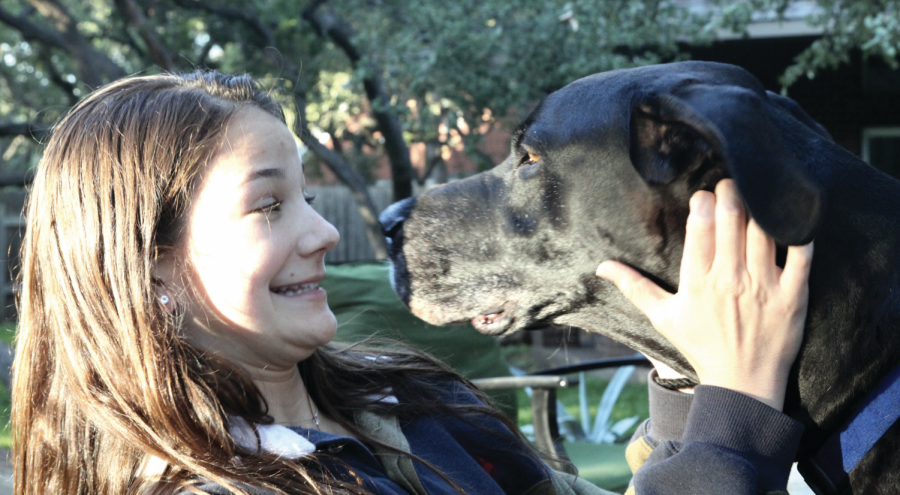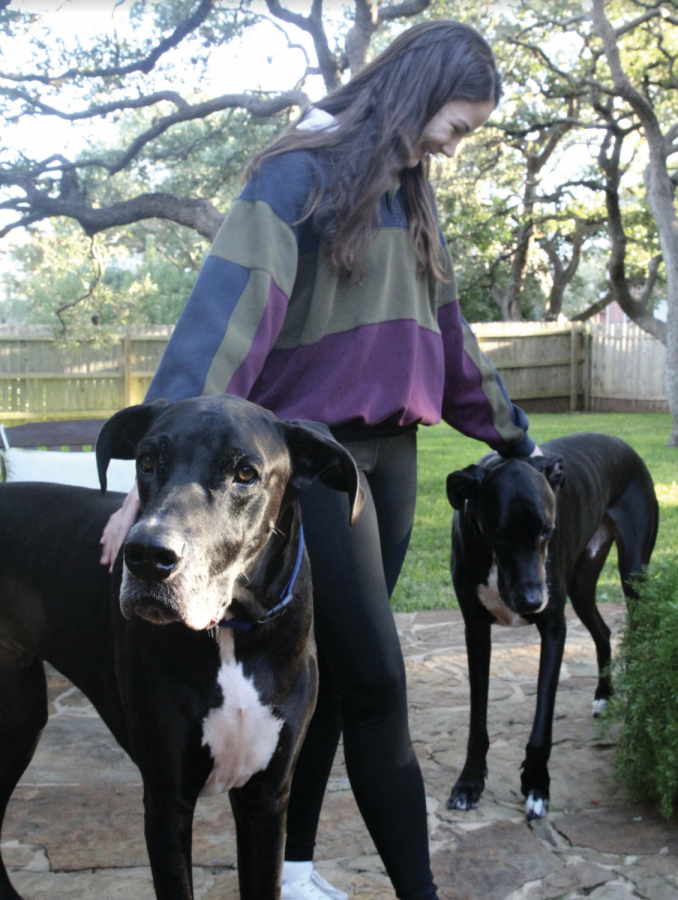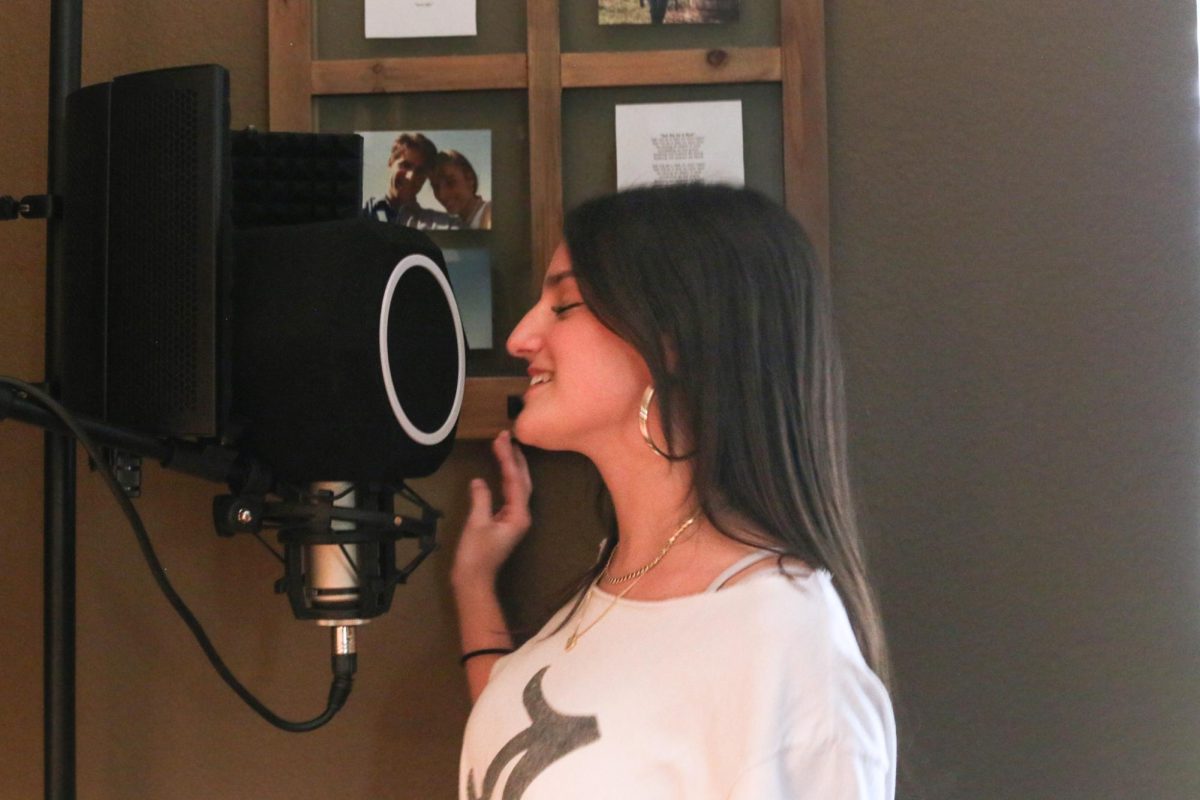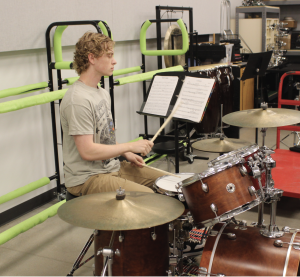Fact or fiction: the mere exposure effect
ALL SMILES: Keira Folkers plays with one of her two Great Danes, Parker and Duncan. They were adopted together, as they are brothers from the same litter. “We picked Duncan and Parker for their names because my dad at first didn’t want to get dogs, and the only way we could get these dogs is if he got to name them,” Folkers said. “My dad is a huge Spurs fan so my dad picked those names after Tim Duncan and Tony Parker.”
December 7, 2021
Students share the reasons they selected the dog breeds they adopted to help debunk the psychological phenomenon
The Mere-Exposure Effect is a psychological phenomenon that theorizes how people tend to be drawn to those who share physical similarities due to feelings of familiarity. This theory is often seen with pets, as their owners may have subconsciously chosen that specific pet due to their physical similarities.
“I don’t think we picked our dogs because they look like us,” Keira Folkers said. “My dad isn’t super tall so I think we picked them because they are Great Danes, which is what my family is used to.”
Folkers owns two Great Danes that contrast her smaller size. When it comes to having pets, she only ever remembers her family owning at least one Great Dane at all times.
“I kind of like how they have differences from my family,” Folkers said. “They’re just very funny, and I love their personalities. I would say it is more about their personality and just how comedic they can be than the actual look of the dog.”
On the other side of the spectrum, Olivia Vienneau owns a Black Lab mix that she often gets told looks similar to her. Both her and her dog have darker hair, hazel eyes, and a similar size.
“I definitely think we look alike because her and I both have strands of gray hair on top of our darker hair,” Vienneau said. “She also just shares a bunch of physical similarities between her and my family in general. My family all has dark hair so she looks like she belongs.”
Although her family was not searching for a specific look when they were trying to adopt, Vienneau’s dog, Darby, has a similar look to the dog’s her family has owned in the past. Vienneau’s family dogs have always been mid-sized with darker hair.
“We usually get medium-sized dogs, which I guess is a similar size to me, because I have a little sister,” Olivia Vienneau said. “We don’t want them too big, but we don’t like small dogs because they are known for being loud.”
This psychological phenomenon is thought to occur because it can reduce uncertainty due to the familiarity. It is also said to occur as it allows us to understand things easier as these similarities in appearance are features we are familiar with.
“In pet world, I don’t think I have ever gravitated towards a pet just because of the way they look,” Folkers said. “In real life, I think I have maybe done it with friends because I feel like a lot of my friends kind of look like me. But at the same time, I also have a ton of friends that don’t look anything like me so I think it’s kind of a balance of both. I think it’s more based on the person or the animal itself than what they look like in my opinion.”
While this psychological occurrence can be a fun observe to make within one’s daily lives, it can influence one’s mind’s to miss out on new opportunities they have yet to have seen. This phenomenon can be limited by going out of one’s way to identify diversity within your everyday lifestyle.
“I think the Mere-Exposure Effect definitely occurs, especially in my family, because we’ve never had a dog that doesn’t share similar characteristics, like a yellow-haired dog,” Vienneau said. “In my life in general, I feel like I tend to get drawn to brunettes more I guess because I too am a brunette. For example, I feel like I am more drawn to brunette celebrities.”










